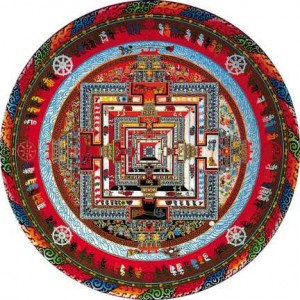
Have I Lost My Mind?
We might ask the question here as to whether in such cases, as with stroke victims, consciousness has been lost, or is it that the special organs of awareness, perception and motor activity – the brain – has simply been damaged?
The work of Karl Pribram, a neurophysiologist at Stanford University, gives further insight into this. His experience of working with fellow neurologist Lashley confronted him with an astounding phenomena. Lashley had trained rats to perform a variety of tasks, such as run a maze. Then he removed parts of their brains and re-tested them. He wanted to see what parts he would need to cut out to remove the memory of what had been learned. But no matter what portion of their brains he cut out, he could not remove their memories. Even with massive portions of their brains removed, their memories remained intact. Pribram found that a similar thing occurred with humans who had, perhaps through injury or illness, lost even massive parts of their brain. So Pribram felt that memory was not localised in the brain, but existed in what was probably a holographic form, where each part contains the whole.
Pribram was very attracted to the work of Bohm because of what Bohm had uncovered about non-locality. This because another way of thinking about non-locality is to see it like a hologram where every part of the universe has in it the whole. (David Joseph Bohm FRS was an American scientist who has been described as one of the most significant theoretical physicists of the 20th century and who contributed unorthodox ideas to quantum theory, neuropsychology and the philosophy of mind.)
So the proposal is that consciousness is what Bernard Rensch calls panprotopsychic. It means that consciousness is present in all matter in some form. If this is true it would mean that the form of consciousness we know as humans is potentially there in all matter, and as the process of life developed into greater complexity, with specialised organs of awareness, the potential could manifest. In doing so it would manifest at different levels as the complexity of form evolved.
It would also mean that all matter is mind, and mind only becomes focussed as personality because of the form and function of the body and brain. However, with the loss of body and brain, consciousness is not lost as it is basically the universe. Without the focussing action of the brain, the universe is sentient as an unfocussed immensity of mind, carrying in it all experience. From this viewpoint everything around us is mind, is a fundamental part of consciousness, and is part of the whole, but expressing as different qualities or functions. As such there can never be a mind body split, as they are one and the same. But as mind, from this standpoint, is all matter, there is no loss of what has been experienced as ones personal life. See You Are a Dual Being and – Out of Body Experiences
If consciousness is fundamental in all the matter and energy around us, and if that is the basis of our own awareness, focussed as it is on sense impressions via the brain, then experiences of extra sensory perception are no mystery. There is a threshold in us between what experiences we have gathered through our body, through our senses, and the Hugeness beyond our own sense of self. That Hugeness holds, in perhaps an unfocussed way, all experience. To know within the Hugeness what is happening to someone thousands of miles away is easy. And that Hugeness only knows experience in the three dimensional world of our body by generating a life form through the processes developed slowly over millions of years on this planet. We are its eyes ears and curiosity in the three dimensional world. See Answer to Critics
I felt how true it was that each of us are like little bubbles, all in our own small sphere of experience. Then it struck me that although all of these tiny individuals appeared to have a separate identity, a separate body in space; and although they all had eyes with which they were looking at the world, they only had awareness out of my own consciousness. In fact they had no existence outside of me. Unknowingly they were all reflections of me.
Suddenly, and with some apprehension, I realised the meaning of this interesting fantasy that my unconscious had been communicating. I am a bubble. My personal awareness, although it seems distinct and separate, is in fact the reflection of one great consciousness pervading the universe. So who am I when my bubble bursts, as it must, and I return to my source? The fear I first felt has long melted. It has been replaced by joy as I have explored what it means to burst and return home.”
Krishnamurti, talking to Bohm said, “Humanity has totally lost the feeling of sacredness.”
